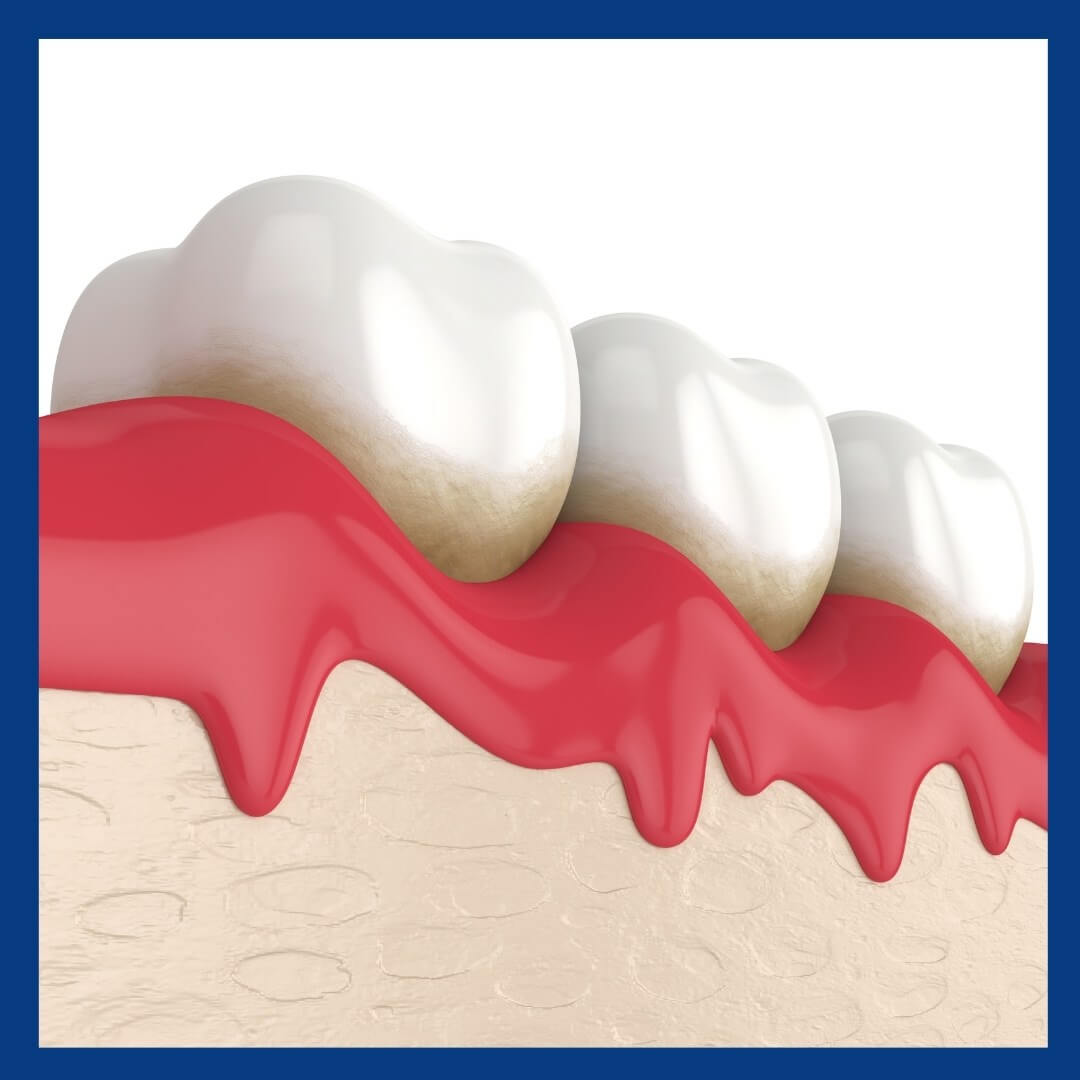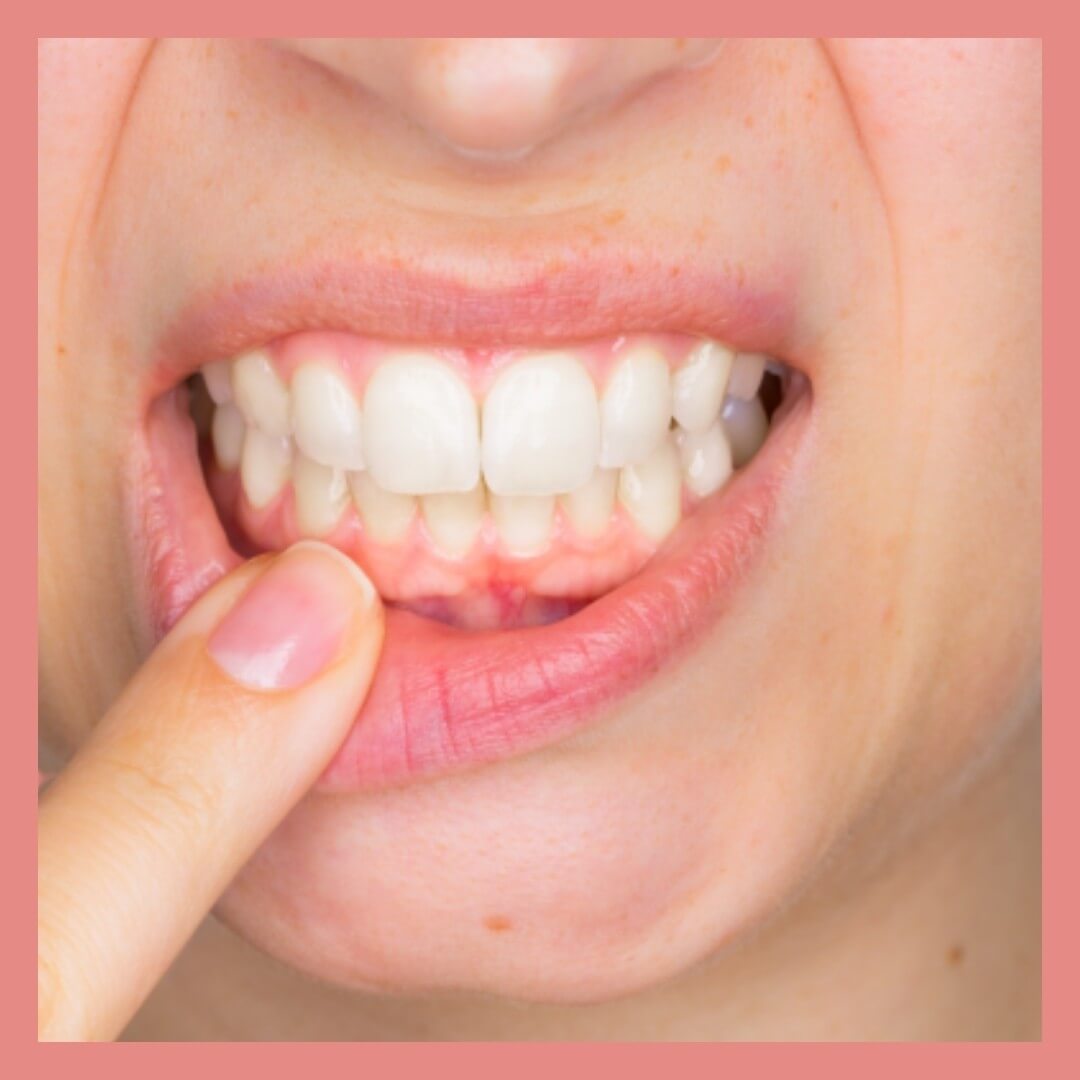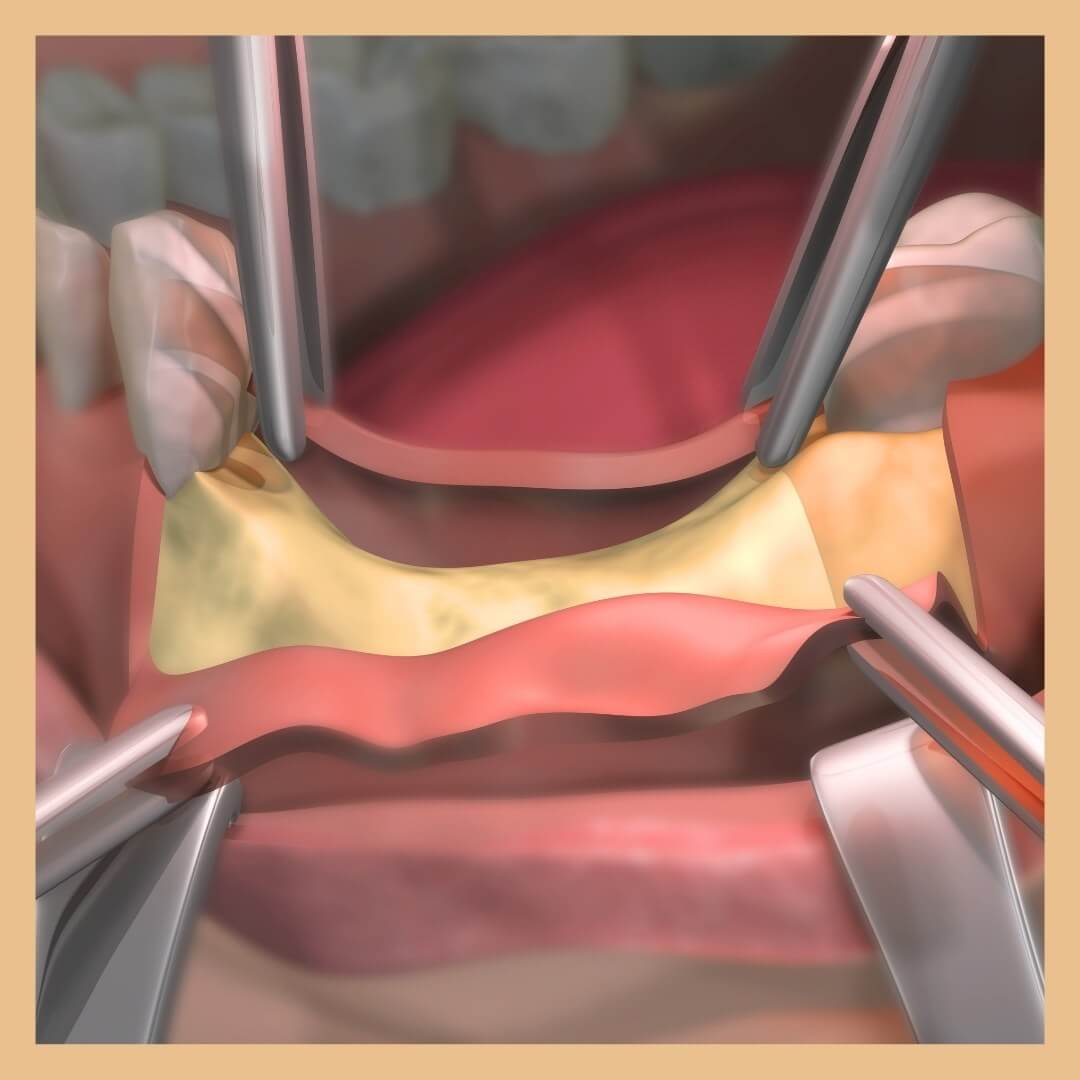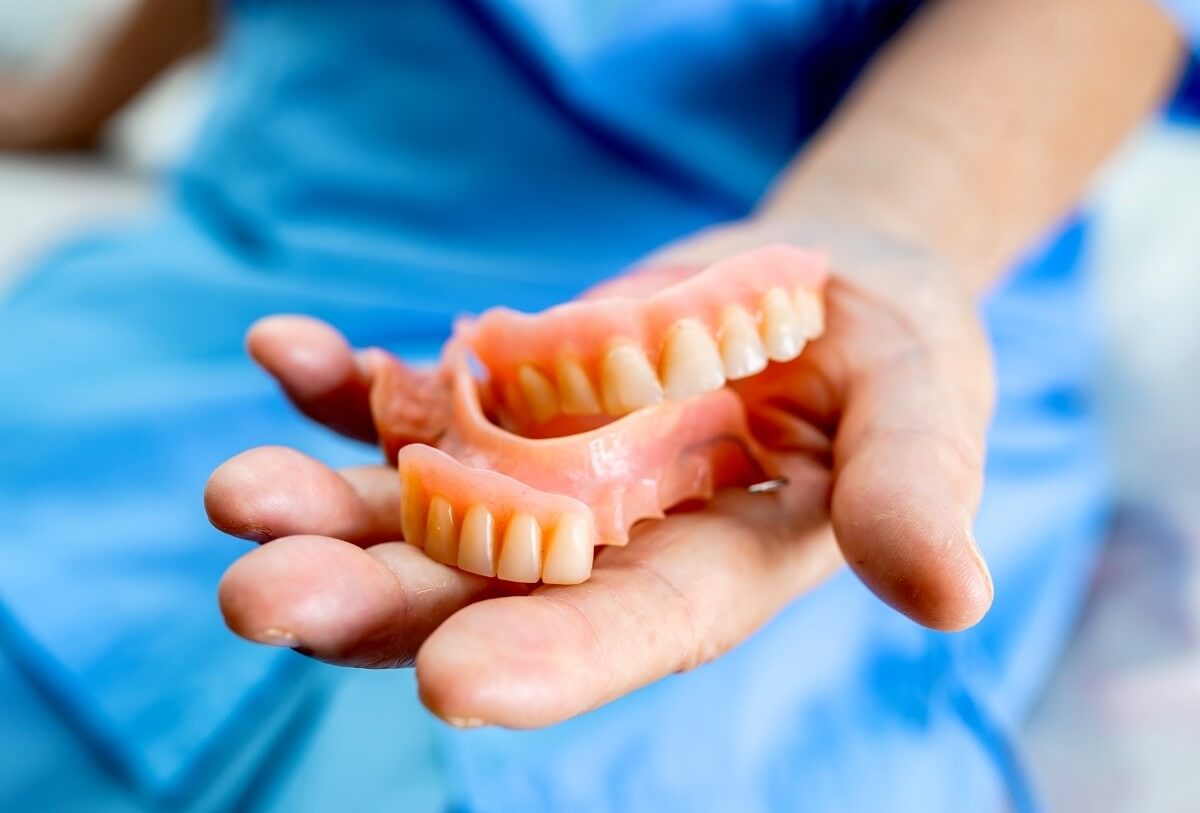Your dentures’ condition is just as important as that of your natural teeth. Wearing dentures that don’t fit properly or are broken can cause serious health problems. For this reason, you should develop a plan for dealing with damaged dentures.
Regular dental checkups are your best defense against dental problems, especially when you wear dentures. The following tips can help you avoid damaging your dentures and repair them if such damage occurs.
Types of Damage to Dentures
Repairing false teeth isn’t as hard as it seems, and you can easily perform any of these procedures at home.
Poor handling of dentures is the most common cause of damage. It’s therefore important to handle your dentures carefully to avoid dropping them onto a hard surface, typically from a nightstand or bathroom counter. Specific types of denture damage include the following:
- Broken teeth or teeth falling completely out of the denture.
- Dentures that are cracked, fractured or broken in half
- Broken or chipped acrylic
- Damaged metal clasps for partial dentures
Dentures inevitably become weaker over time as a result of constant wear and tear. Chewing every day causes dentures to experience many stress cycles, which can cause your jawbone to change shape or the dentures to say it differently in your jaw over time. These processes result in pressure points on your dentures that cause additional stress and weaken them. Furthermore, fluctuations in environmental conditions such as temperature, acidity and humidity can all affect the condition of your dentures.
Prevention is more effective than cure, like so many things in life. As such, you should treat your false teeth carefully to minimize the risk of damage. This article provides more details on recognizing the signs that you may need new dentures
Common Causes Of Broken Dentures
General wear and tear is one of the most common causes of denture damage. Regular chewing, grinding and pressure cause constant stress and strain, preventing your dentures from lasting for the rest of your life as you might hope. Then the dentures will become more likely to crack as they age, and the losing teeth can eventually fall out.
You can also damage your dentures by eating unusually hard foods. Furthermore, the acids in many beverages and foods also cause dentures to wear out more quickly. Additional factors affecting the wear and tear dentures over time include hot and cold foods and beverages.
How Often Should I Replace My Dentures?
Your dentures should last for five to eight years, assuming you care for them properly. In addition to checking the condition of your dentures, your dentist can also look for oral health problems during your dental appointment.
What to Do When Your Dentures Break?
The first thing you should do when your dentures break is to schedule an emergency appointment. Even if you’re able to perform a temporary repair, you still need your dentist to check your dentures and repair them properly as soon as possible.
Your next step in dealing with broken dentures is to identify the specific part that’s broken, which typically includes damage to the pink acrylic or the teeth themselves. However, in some cases, the break may expand completely across the plate, leaving the dentures into pieces. Once you understand what’s happening to your dentures, you can determine if it’s something you should attempt to repair until you can see your dentist.
Quick Denture Fixes
Unfortunately, there really isn’t much you can do to repair your dentures if they’re fully or half broken, your best option at this point is to consult with your prosthodontist to find the best treatment for your broken dentures. However, you should still keep an FDA-approved denture repair kit to make the repairs that are possible. This type of kit is available at local pharmacies and contains everything you need to make temporary repairs for dentures, especially a safe bonding material. Some kits also contain artificial teeth, allowing you to replace missing or damaged teeth in your dentures.
It’s vital that you never attempt to repair your broken dentures with other non related types of adhesives. The bonding materials in denture adhesive kits are specifically designed to repair dentures, so they don’t contain the many toxic substances that most household adhesives hold. It may be tempting to use epoxy resin, commonly known as superglue, to repair your dentures, but this procedure is highly unsafe. This type of adhesive contains multiple substances that are highly dangerous if consumed.
Why Can’t I Use Super Glue To Fix My Dentures?
The primary reason that you can’t use superglue to fix your dentures is that it’s highly toxic, especially in your mouth. Super Glue was originally used to create field sutures, and they’re still used for this purpose in an emergency. However, superglue was never intended to be used orally. Additional reasons for not using superglue to repair dentures include the following:
- Denture materials – The materials most commonly used to make dentures include metals and acrylic, which are the best choice for bonding with superglue. Many better choices exist. From a technical perspective, which you can obtain from pharmacies or other retail outlets in an emergency. Thus, there really isn’t any need to use superglue to fix your dentures.
- Solubility – Superglue is slightly soluble in water, meaning that the toxins they contain will slowly leach into your mouth. Furthermore, Oral chemistry differs considerably between people, meaning the rate at which this process occurs can vary greatly. Again, there’s no reason to put superglue on your dentures.
- Alignment – Assume for the sake of argument that you’ve already repaired your dentures with superglue. When gluing a tooth back in repairing a complete break in your dentures, it’s very difficult to know if the broken part is properly aligned with the rest of your dentures. Misaligned dentures can cause various types of long-term problems, including damage to your natural teeth. You should therefore leave denture repairs to your dentist if at all possible.
Repairable dentures – Your dentist will need to remove the home repair to your dentures when you bring them with you to your dental appointment. However, you may find that this temporary repair prevents your dentist from repairing your dentures professionally, thus requiring a complete replacement. As a result, it’s best to wait for your dentist to fix your dentures from scratch. If you can’t wait, at least use the materials in an approved denture repair.
Replacement Options For Broken Dentures
Your dentist may need to send your dentures out for repairs if they’re broken completely in half. They may also require replacement in many cases.
Your dentist will perform a general assessment of your dentures to determine if they can be saved. They may just require realignment if the only problem is that they’re uncomfortable because they fit poorly. Your dentist will discuss your replacement options with you if your dentures are too old to be worth repairing.
Why Is Proper Fit Important For Dentures?
Your dentures need to fit properly to prevent the following issues:
- Gum irritation
- Blisters and sores
- Infections from both bacteria and fungi
- Eating difficulties, which can lead to a poor diet
- Bone loss



ill-Fitting Dentures
ill-fitting dentures are one of the leading causes of denture wear and cracking. For non-stable and non-retentive dentures, using denture adhesive or relying on dentures can be an option. However, you should consult with your dentist to determine the best solution for your case.
Relining Dentures
Relining dentures adds material to the inner plate that hugs your gums. Your dentist will perform this procedure to conform any changes in the underlying hard and soft tissue in your mouth, or repair and replace lost or broken parts of the denture. Your dentist will often be able to reline your dentures in the office if only a small adjustment is necessary, which may require your dentist to also take impressions of your mouth. Major changes to the fit of your dentures may require mailing it to a laboratory to perform the relining. This option would mean living without dentures for several days.
How To Avoid Broken Dentures?
Time is the primary cause of broken dentures, so your best approach to preventing damage is to take good care of them in the first place. You also need to follow a healthy oral hygiene regimen. For example, you should brush your dentures regularly, including rinsing them thoroughly and allowing them to soak overnight. You should also place a washcloth in the sink or fill the sink with water when cleaning your dentures to soften the impact if you do drop them.
Your dentistry will monitor your dentures’ condition at your regular dental checkups, allowing them to address problems before damage can occur.
Even if you take excellent care of your mouth and dentures, regular denture replacement is normal. The American College of Prosthodontists recommends that dentures should be relined or replaced every five to 10 years to keep the underlying bone and gum healthy.
What Are My Denture Replacement Options?
Removable dentures may be a good option for replacement dentures, especially if you’re on a tight budget. However, permanent solutions for replacing your teeth are also available. Bone loss is also a factor to consider when selecting your denture replacements.
Dentures that don’t fit well can contribute to bone loss, as previously mentioned. This process can cause your mouth to recede, resulting in changes to your facial appearance. The possibility of bone loss is also an important reason to have dental checkups regularly, as they provide your dentist with an opportunity to assess your bone and jaw health.
Fortunately, your dentist can recommend denture replacement options that can help you avoid bone loss in addition to looking and feeling better than the dentures you have now. These options include implant retained dentures and denture implants.
Implant retained dentures are a hybrid between traditional dentures and dental implants. These prostheses fit snugly over your gums and are attached to the titanium posts implanted in your jawbone. Implant retained dentures are more secure than traditional dentures, making it easier for you to talk and eat.
Dental implants are the best option for replacing your teeth. They look and feel like your natural teeth, and may slow bone loss or prevent it entirely. Dental implants also have many other benefits such as the following:
- Improved ability to talk and chew
- Restoration of your original facial structure
- Preservation of your remaining jawbone
- Recovery of your teeth’s natural function and appearance
- Greater confidence
- Easier oral care
- Can last a lifetime with proper care
Please book your next appointment online or contact us at 713-322-8811 to learn more about your treatment options when dealing with broken dentures. And one our dedicated dentists will help you to replace or fix your broken dentures.
See Also: The Best & Strongest Denture Adhesives On The Market?

